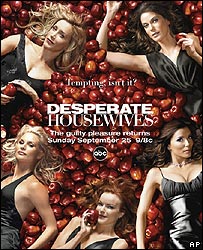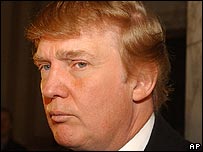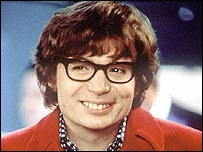Untitled Document
 |
A Desperate Housewives storyline
saw a character sell Buick cars |
Film and TV unions in the US have called for a code of conduct to regulate
the way products are placed within shows and movies by advertisers. But is hidden
advertising a fact of life in modern entertainment?
The Writers Guild of America and the Screen Actors Guild have joined together
to object to what they see as the increased blurring of lines between advertisements
and entertainment.
They want more transparency by film studios and TV programme makers agreeing
to disclose all product deals to viewers before shows or movies begin.
They also want a cut of the proceeds for their members, who the unions argue
should be given a say in the way products are introduced to storylines.
"We are being told to write the lines that sell this merchandise and to
deftly disguise the sale as a story," a study by the unions claims.
Recent examples include the regular glowing endorsement of Cisco computer security
by the characters in US action TV series 24.
The heroes also used a fleet of Ford cars as they battled with terrorists.
Filmgoers are regularly exposed to products being worked into movies.
Famous placements
James Dean is credited with one of the early hit product placements.
When he used an Ace comb in 1955's Rebel Without a Cause, sales rocketed.
Confectioners Reese's reportedly saw sales rise 66 per cent after their chocolates
were used to coax ET out of hiding in Steven Spielberg's 1982 movie.
Endorsements are now big business, as 20 firms reportedly bought space in the
last James Bond film, Die Another Day, in order to be associated with the suave
secret agent.
I, Robot may have been set in the future but Will Smith's tough cop used Converse
trainers and Audi cars in a prominent way.
Advertisers have also been flexible enough to allow their products to be used
in spoofs.
 |
The Apprentice gave entrants tasks involving Burger King and Star Wars |
Mike Myers parodied product placement in a scene in his comedy Wayne's World but
then worked in a promotion of Heineken beer, albeit in a tongue-in-cheek way,
into Austen Powers: The Spy Who Shagged Me.
Paid product placement is currently outlawed on TV in the UK but regulator
Ofcom has announced it is looking at the issue with a view to consulting broadcasters
on a possible rule change.
The issue is a sensitive one for UK broadcasters.
Last month, a BBC investigation cleared independent production companies behind
shows including Spooks after allegations that they were paid to feature brands.
'Change unavoidable'
But it found that there was some product prominence which was not editorially
justified.
The corporation said it would "heighten the awareness of programme makers
in this area in the light of this investigation".
UK firm 1st Place represents clients including camera manufacturer Canon and
Volkswagen cars.
The firm's credits include having a character use a Canon camera in the BBC
sitcom Absolute Power, all within the corporation's guidelines.
Managing director Steve Read believes it is "unavoidable" that paid
product placement in introduced to the UK.
"We are seen as manipulators of the media but production companies call
us more than we call them," he says.
"The whole of the entertainment industry is facing tightening budgets
so we save them thousands of pounds each year by loaning them products to use
in productions.
"In the UK and Europe we have far stricter rules on placement than the
US, where it is almost 'anything goes'.
New technology
"Here, products have to be loaned to production companies and can only
be used in a proper context.
 |
Austen Powers star Mike Myers has included sponsors in his movies |
"This works as it means products are only featured in authentic scenarios
and should be the basis for any paid product placement rules."
Mr Read says technology such as personal video recorders, which allow viewers
to cut out commercials, are increasing advertisers' drive to get placements.
"The consumer is now the editor," he says.
"People are also watching television in mass audiences less, which makes
the advertising slot less of a catch-all tool.
"We live in a branded world and entertainment has to reflect that or it
does not look real."

